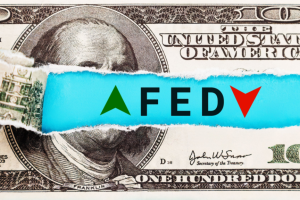
Mullen Automotive (NASDAQ:MULN) stock has fallen lower by more than 99% so far this year, although the electric vehicle (EV) company believes that other entities are to blame for the decline. Yesterday, Mullen announced that it had launched a federal spoofing lawsuit against UBS Securities (NYSE:UBS), IMC Financial Markets, Clear Street Markets and John Doe defendants one through 10.
Mullen alleges that the defendants engaged in the spoofing of MULN stock from Nov. 9, 2021 to Nov. 9, 2023. The company has hired Christian Attar Law Firm and Warshaw Burstein to assist with the case.
These two law firms, along with forensic investigators, have concluded that “the magnitude of the spoofing is unprecedented, resulting in over 5 billion shares being issued at artificially deflated prices since Company’s Nasdaq debut in November 2021.”
MULN Stock: Mullen Files Federal Spoofing Lawsuit
As a result of this new lawsuit, Mullen has voluntarily dismissed the lawsuit it had previously filed against TD Ameritrade, Charles Schwab (NYSE:SCHW), National Finance Services and other John Doe defendants back in August. That lawsuit had alleged that the defendants engaged in market manipulation by selling over 34 million fictitious and/or shareholder-owned MULN stock shares over a three-month period.
“The Company conducted a cost-benefit analysis of both cases and concluded that it would be a prudent exercise of business judgment to pursue the larger spoofing litigation rather than the short-selling litigation,” said Mullen.
So, what exactly is spoofing? Spoofing occurs when a market participant places a bait buy or sell order that the participant does not intend on actually executing. Instead, the participant seeks to use that order to manipulate the price of stock in order to influence other market participants to place a buy or sell order. In the case of a sell spoofing order, the participant could purchase shares at a lower price and then cancel their initial sell order.
Mullen has alleged that the defendants placed thousands of spoofing orders over the two-year period. It believes that UBS is the biggest culprit based on available data and states that the investment bank was involved with 431.03 million baiting order shares.
On Penny Stocks and Low-Volume Stocks: With only the rarest exceptions, InvestorPlace does not publish commentary about companies that have a market cap of less than $100 million or trade less than 100,000 shares each day. That’s because these “penny stocks” are frequently the playground for scam artists and market manipulators. If we ever do publish commentary on a low-volume stock that may be affected by our commentary, we demand that InvestorPlace.com’s writers disclose this fact and warn readers of the risks.
Read More: Penny Stocks — How to Profit Without Getting Scammed
On the date of publication, Eddie Pan did not hold (either directly or indirectly) any positions in the securities mentioned in this article. The opinions expressed in this article are those of the writer, subject to the InvestorPlace.com Publishing Guidelines.




